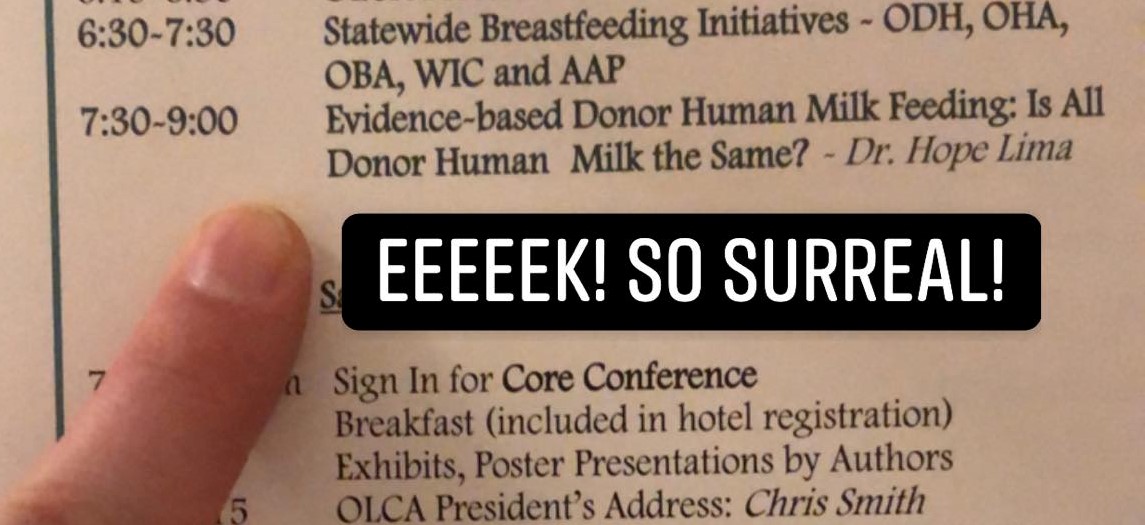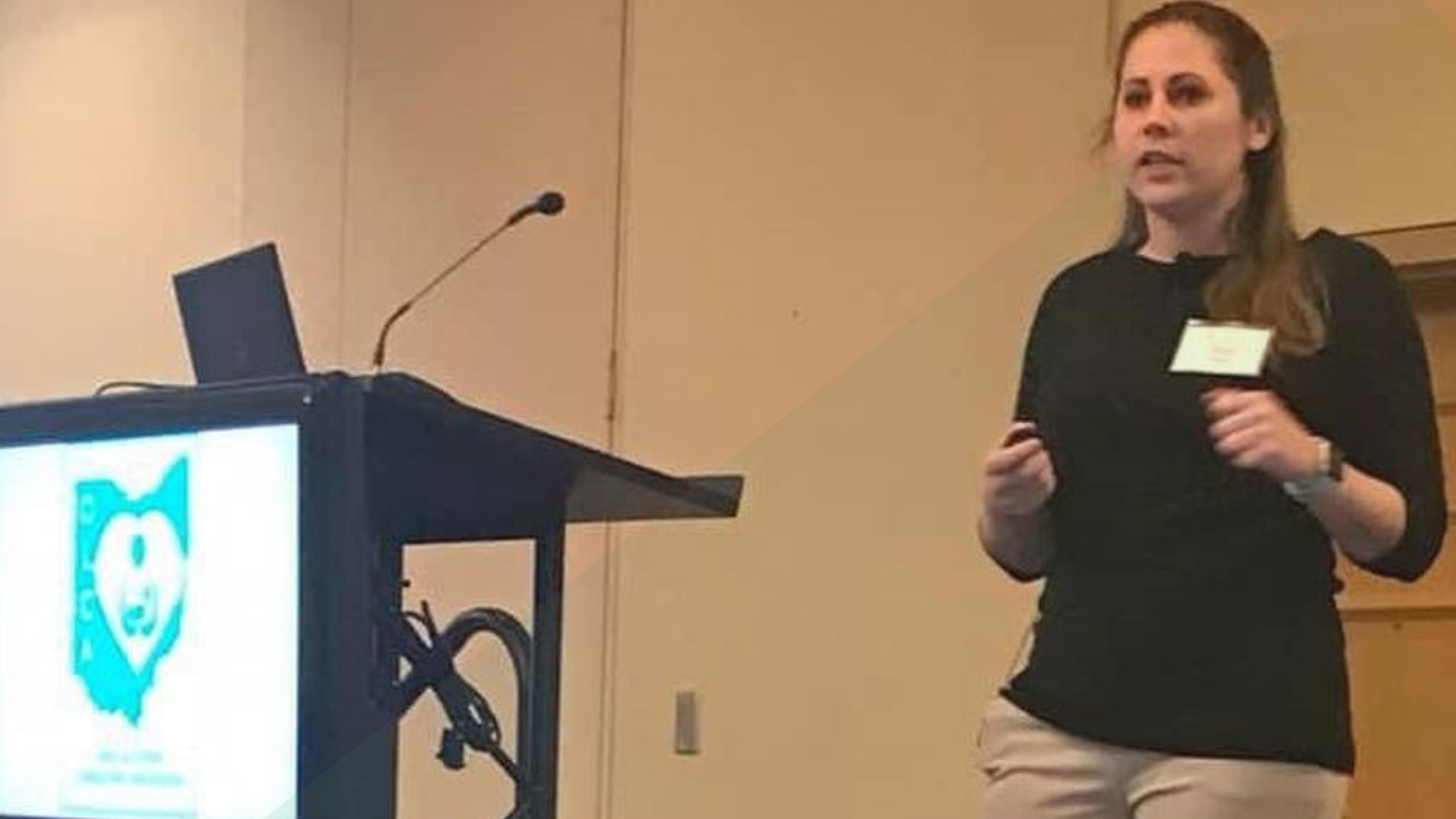Type a search + hit enter!

This past weekend I had the absolute honor of speaking at the Ohio Lactation Consultant Association’s annual conference: Breastfest! The experience was extremely humbling, and in addition to speaking, I got to learn from from amazing practitioners and researchers from across the country. The conference started strong, and the first session that I attended was […]
read more
latest post

read more

This past weekend I had the absolute honor of speaking at the Ohio Lactation Consultant Association’s annual conference: Breastfest! The experience was extremely humbling, and in addition to speaking, I got to learn from from amazing practitioners and researchers from across the country.
The conference started strong, and the first session that I attended was given by Robin Glass, author of Feeding and Swallowing Disorders in Infancy: Assessment and Management. Robin works as an OT/IBCLC at Seattle Children’s. Some new things I learned during this presentation:
- You can utilize the infant’s palmomental reflex to encourage a wide open mouth by pushing on the middle of their palm
- If you are working with an infant that has low-tone in their tongue, you can tap along the midline from the front to the back of the tongue only as far as you can see from outside the mouth
- Pulling the tongue back/up can be a compensatory strategy for weakness in the neck (when the baby pushes up with their tongue it stabilizes the neck and can help with breathing)
- When baby benefits from bilateral cheek support, you can use kinesiotaping to facilitate cheek stability
Another interesting session that I attended was given by Joni Gray, speaking on the Appalachian/American Cultural Power Code of Formula. This session was intriguing to me, as I went to school in the heart of Appalachia at West Virginia Wesleyan College. I learned quite a bit from this session. I learned that a power code is a behavior that you can engage in that makes you part of a community, and indirectly, gives you power. The context Gray put this in for breastfeeding is that in Appalachia, formula is the majority “power code” – and by choosing to breastfeed you are leaving this community for a smaller sub-community with less power. Gray’s interactive activity was the most interesting part, where we reflected on this Similac commercial:
Think about these things after you watch:
- What is the message of this commercial (overlying and underlying)?
- Does this commercial support the dominant culture of formula feeding?
- How is this commercial portraying breastfeeding moms?
- Do you feel this commercial is contributing to a cultural shift in perceptions of breastfeeding?
The last thing I am going to summarize was my experience learning from Dr. Bobby Ghaheri. The sessions led by him were extremely informative, as he specializes in infant and child tongue tie diagnosis and reversal at The Oregon Clinic. While I cannot summarize everything I learned from him here, I do have an excellent blog post he wrote & you can read it here. Tidbits I learned from Dr. Ghaheri include:
- Always assess for ties with the baby in your lap legs facing away from you and coming from above the infant
- If you are palpating below the tongue [looking for tongue tie] and there is muscle push back, you cannot be sure it is a tongue tie – you need to resolve the muscle tightness before you can determine if a tongue tie is restricting motion
- Lip tie can be recognized with blanching of lip when pulling back, nodule on the bone beneath where the lip is tied to the gums
- Anterior tongue tie is almost always hiding a posterior tongue tie
I want to wrap up this post by taking the time to thank the OLCA Breastfest Planning Committee for such an organized, professional, and intellectually stimulating weekend.
Get Your copy →
Cross the finish line with confidence.
Don't walk into your IBCLC exam nervous - with our comprehensive study guide in your back pocket, you'll be prepared for every scenario and question.
